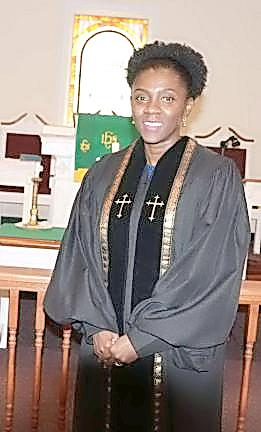Local pastor talks about the impact of history on Black women’s health
Rev. Dr. Ann Marie Bentsi-Addison Posey of the Warwick AME Church traces the roots of health inequity

Speaking at times in a voice filled with passion, the Rev. Dr. Ann Marie Bentsi-Addison Posey of the Warwick AME Church talked over Zoom on March 27, 2022 about why health outcomes in Black women and people of color are often worse than those of white women.
Posey provided the virtual audience with a comprehensive backgrounder in how Black women have been treated in this country: initially as property; as livestock to bear children to be used as free labor; and the lesser-known history, as human guinea pigs for doctors and medical students.
This deep context illuminates today’s imbalanced dynamics, in which Black women often mistrust the medical establishment. Along with socioeconomic disparities – like the fact that a Black woman earns an average of $0.63 to a white man’s dollar -- and a disproportionate lack of access to insurance, the stage is set for inferior health outcomes for Black women and, more broadly, women of color.
“At no time has there ever been attention brought to the fact that our bodies have been violated since we set our feet on these shores involuntarily until today,” said Posey.
This medical disenfranchisement is not a historical bygone. Posey cited a 2016 study that found that when four actors – a Black woman, a white woman, a Black man and a white man - playing patients with the identical complaint went to an ER, each had a very different outcome. The Black woman received the least attention, her symptoms, she was told, were all in her head, and she was sent home. Her white male counterpart, by contrast, was taken seriously, and his complaints thoroughly investigated.
The Covid pandemic has widened these fractures in ways that will manifest for years to come. Delays in cancer screenings, including 285,000 missed breast exams, could lead to excess breast cancer deaths of 2,487 over the next decade.
Posey stressed the importance of better health education, improved access to health care; the need for both patient and provider to have timely, accurate communication, where each really hears and understands the other.
“Better education leads to better outcomes,” she said. “When we know better, we can do better.”